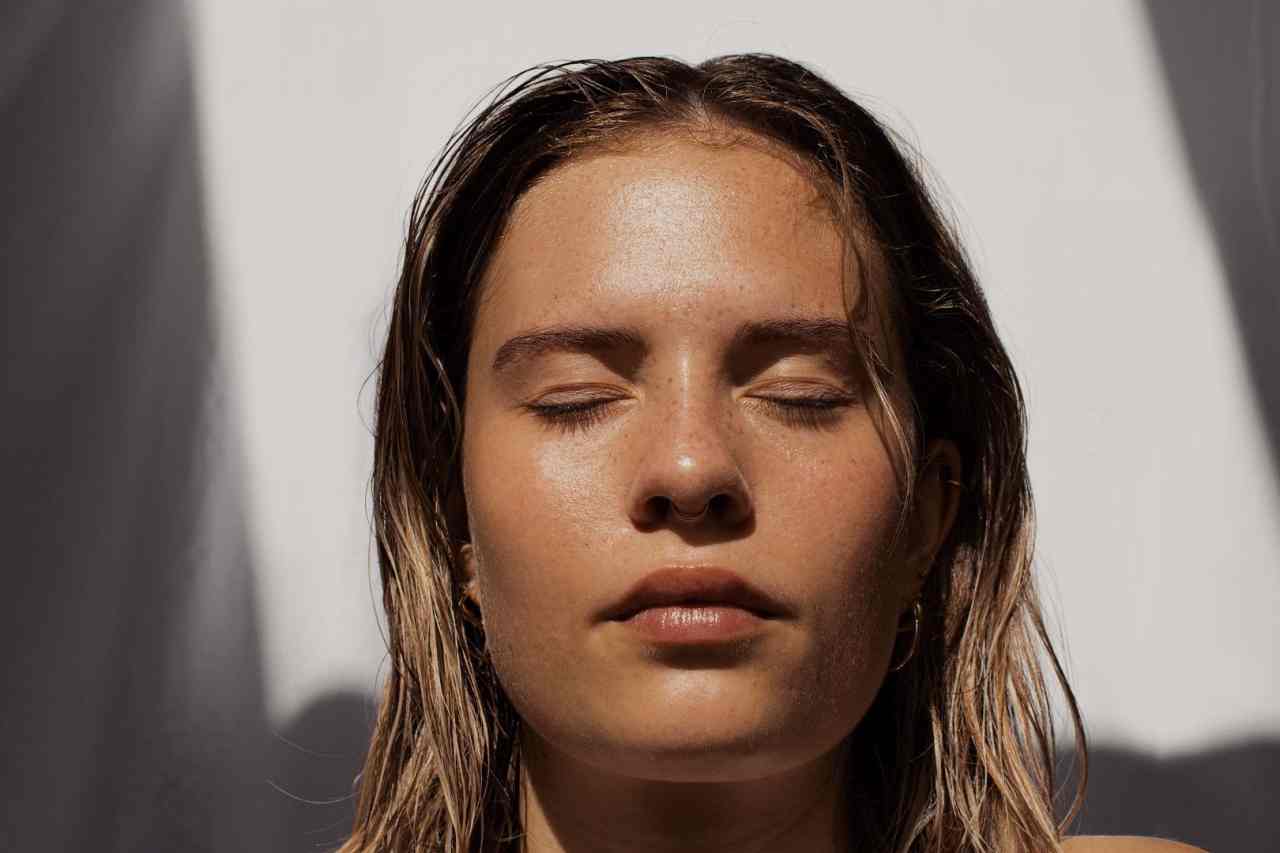It’s a universal truth that beauty buffs agree upon: You won’t find the secrets of radiant skin in your make-up bag. Glowing skin starts with healthy skin. Period. According to industry experts, the skincare trends of 2023 will be following a “less is more” approach – that’s definitely something that we can get on board with. Good skincare in 2023 also entails repairing and nourishing, thinking green, UV protection and looking to plant extracts for that extra glow. Let’s take a closer look at these trends.
1. Skinimalism
Remember when a 12-step skincare routine was huge? Not anymore. The Pinterest Predicts Report named skinimalism (a.k.a. minimalist skincare) the next big trend in the beauty world. The antidote to those caked-on make-up tutorials, skinimalism is all about using as little as possible to promote a healthy and natural glow, while cutting back on toxins and waste in the process.
“The minimalist approach is really important because our skin is very clever at working out how to heal itself,” says dermatologist Dr Shyamalar Gunatheesan. Look for multipurpose products with few ingredients and three- to four-step skincare routine ranges.
Gève 1 Core series
This easy-to-use product range (pronounced: zhev) is perfected in the lab, offering great hydration and glow. The formulation targets the skin’s chromosomes at DNA level and is a catalyst for regeneration of skin cells.
From R550 at Skinmiles
2. Barrier Repair
In the past, barrier repair creams and serums were not given their due credit. 2023 is their time to shine. Perhaps in reaction to the skin stressors in previous years, there has been an increase in barrier repair-centric creams, both of the restorative, strengthening nature and the protective kind. As the name suggests, barrier repair creams help fortify the skin-barrier – which, in essence, keeps the bad stuff out, and the good stuff in.
Protects irritated, chapped lips and localised areas – such as cheeks, around the mouth and the nasal contour.
R239 at Clicks
A multi-purpose balm to soothe and protect compromised, dry skin. Aids in recovery after an irritant contact dermatitis, post-peel or post-laser treatment.
R110 at Dis-Chem
Ceramides, bakuchiol and hyaluronic acid work to repair the skin barrier, while providing moisturisation and support.
R450 at Yearn Skin
3. Circular Beauty
More than 120 billion units of packaging are produced each year by the global cosmetics industry and most of it ends up in landfills. “The beauty industry is one of the world’s most unsustainable industries,” confirms Lorraine Dallmeier, biologist and founder of online organic cosmetic formulation school Formula Botanica.
“Consumers are looking for packaging that is recycled to start with, refillable if possible or recyclable,” adds Cathy Tolpigin, an organic make-up artist and founder of Australian clean beauty resource The Green Edit.
Beyond packaging, circular beauty also means sustainably sourced ingredients and planet-friendly production.
This cream is light enough to use on the face and rich enough to use all over your body. The Skin
Creamery range is packaged in recyclable glass, with the option to refill the Everyday Cream and Oil Milk Cleanser.
R 440.63 at
The Skin Creamery
L’Occitane, in an effort to reduce plastic waste, now offers refills for various products, which can be decanted into this elegant dispenser.
R110 at L’Occitane
Plaiin uses completely reusable and degradable packaging and every product is food-grade. This nourishing oil bar, with rosehip oil to fight hyperpigmentation, can be rubbed aaall over your skin.
R375 at Plaiin
4. Cleanicals
Research into botanical ingredients and natural supps for chemicals is heating up as demand for clean skincare grows.
“A decade ago we didn’t have all these natural emulsifiers and surfactants, preservatives and stabilisers,” says Dallmeier, “but now you could take any mainstream beauty product and recreate it with naturals only.”
Disproving the notion that nature and science don’t mix, cleanical beauty brands are making waves with lab-tested formulas. This research offers us reassurance, explains Gunatheesan. “I think the consumer needs to ask – even if it’s a small clinical study – what has been the improvement in skin hydration [or in] wrinkle depth?” she says. “We should be open to natural ingredients actually giving results, but [brands] need to show clinical data and studies.”
This serum reduces inflammation,
redness, and irritation. Apply under
moisturiser in the morning and under night cream in the evening.
R995 at Clicks
This cleanser, made with rosehip, pomegranate and baobab, works to gently bind to dirt on the skin and untangle it, so it can be washed off.
R350 at Litchi & Titch
Apricot kernel, almond and wheat germ work to balance the skin. It also calms and promotes radiance.
R525 at Dr Hauschka
5. Blue Light Protection
Screen time takes a lot of flak, much of it justified. Poor eyesight. Bad posture. Damaged skin. Yep, blue light – also called HEV (high energy visible) light – emitted from electronic devices like our phones, tablets and TVs may lead to premature skin ageing and skin damage. Research on exactly how bad blue light could be for your skin is still ongoing but it’s worth observing that the consensus among dermatologists into its seriousness is murky. Either way, keep your screen time low for your health and for your skin.
This melt-in cream absorbs into
the skin for a soft, comfortable
finish that will last all day. Helps
fight daily aggressions all day long
while protecting your skin from the
effects of blue light.
R782 at Absolute Skin
This skin tone-adapting SPF works to block blue light from developing into the signs of ageing. Zinc and iron oxides work together to protect from UV and blue light rays.
R1280 at Dermastore
With advanced light-activated technology, this nutrient-rich blend, with antioxidants, works to moisturise while protecting you from all harmful rays, so none prosper.
R499 at Dermalogica













